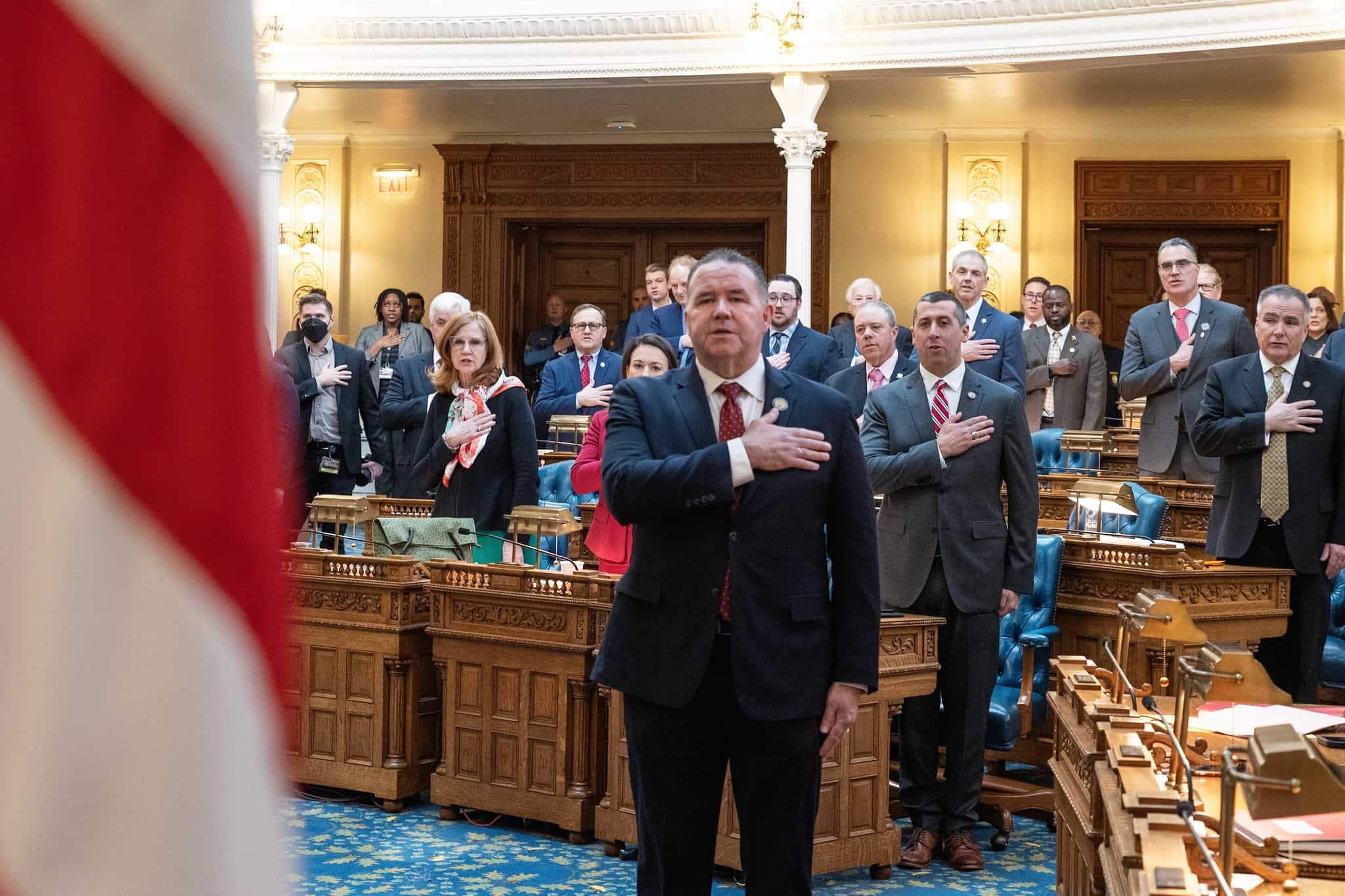By Assemblyman Alex Sauickie
For those of us who have watched a horse race or two, the home stretch is almost always the most exciting part. But as we head into the home stretch of the state budget process in Trenton, I can’t say I’m very excited, although I believe I’ve done everything I could to bring more sanity and reasonableness to state spending policies.
Over the past several weeks, I’ve written about the process by which Trenton develops the budget, and how I’ve used that process to advocate for priorities important to the people I represent. I have hope that I’ve gotten through on as many of those as possible. If not, I’ll keep at it.
Unfortunately, history and the broad outlines of the budget suggest taxpayers won’t get what they really need. While the destructive effects of the state’s school funding formula have been reduced for the upcoming school year, the formula hasn’t been reformed. It’s unclear if the 2024-2025 school year’s cuts will be “only” as bad as planned, or if the state will try to also revisit the full aid cuts originally intended for the 2023-2024 school year.
The school aid formula is awful not only for Jackson schools, but also for its property tax payers. Reforming it would be true property tax reform. Unfortunately, the election-year announcement of a new property tax relief program called StayNJ won’t help most Jackson households. It promises certain seniors big relief three years from now, and a smaller amount in next year’s ANCHOR program.
But let’s save discussion of the actual budget until later, when we know what’s in the final bill.
As I write this, we’re not yet into the last week of June, which is normally when the budget bill is considered by the budget committees of the Assembly and Senate, and then receives final votes by each of the houses. Although the details of the budget are usually worked out between the Legislature and the governor before these votes – especially when they’re all controlled by the same party – the governor still has an opportunity to make changes.
Once the budget bill is on the governor’s desk, the governor has several options. The two most common are simply signing it into law as-is, or signing it with “line item vetoes,” which means he can strike out particular items while signing the rest of the budget into law. The Legislature can override a line item veto, but it’s very rarely done.
If the governor has a bigger problem with the budget, he can let it become law without his signature; he can conditionally veto it, meaning send it back to the Legislature with proposed amendments; or even veto it outright. These are very unusual and unlikely moves, though.
While most attention is understandably on the budget, believe me, the Legislature is doing other things as well. A lot of other things.
The Legislature usually takes the summer off after the budget is passed, which is supposed to happen before July 1. In election years such as this one, the Legislature may not meet again until November.
Therefore, in June there’s a kind of fire sale on legislation – “everything must go!” A large number of bills move through the process so that they can get to the governor before the Legislature goes on break, whether they’re budget-related or not.
As an illustration, the Assembly Appropriations Committee had 71 bills on the agenda for its late June meeting. Under the Assembly rules, the committee is usually capped at 12 bills per meeting, so during the home stretch of budget season the committee is considering six times the number of bills it normally would.
Not all of those bills are necessarily bad, of course. But in addition to those 71 bills, there were more on another committee’s agenda and plenty already out of committee and in position for a floor vote. This means that very few bills will get the kind of unhurried scrutiny that should be applied to something that may become law.
I haven’t been able to go through all the moving bills yet, but I haven’t heard of any that will provide meaningful, structural property tax relief in the near term. I’ll let you know if I find any.
It looks like, while the budget process is in the home stretch, real property tax relief hasn’t even reached the starting gate yet.
Alex Sauickie is a life-long Jackson resident who represents his home town and 13 other towns in the State Assembly. Follow him on Facebook (/AssemblymanAlex) and on Instagram (@AssemblymanAlex), or visit his website at AssemblymanAlex.com.
###
Note: This opinion piece originally appeared in The Jackson Times by Jersey Shore Online in its publication dated July 1, 2023.
 in Cream Ridge.
in Cream Ridge.